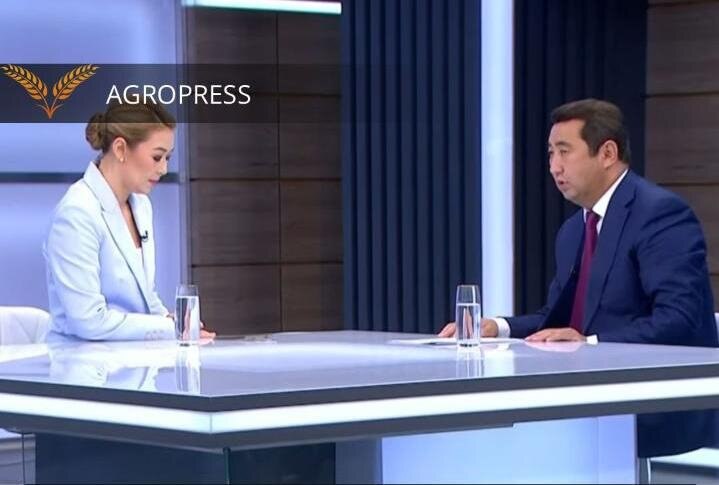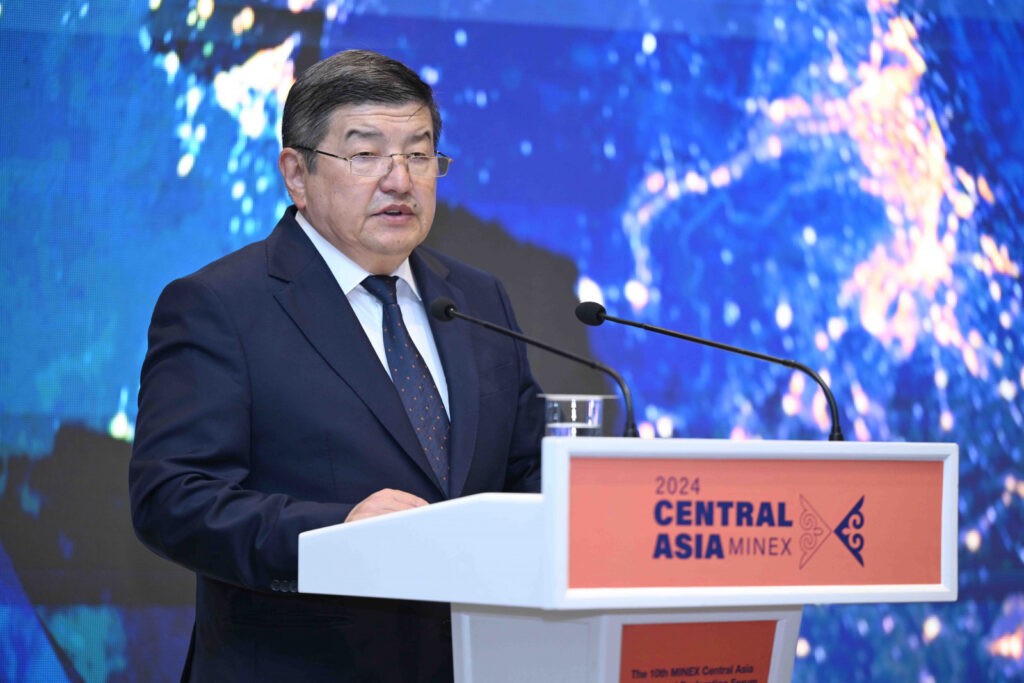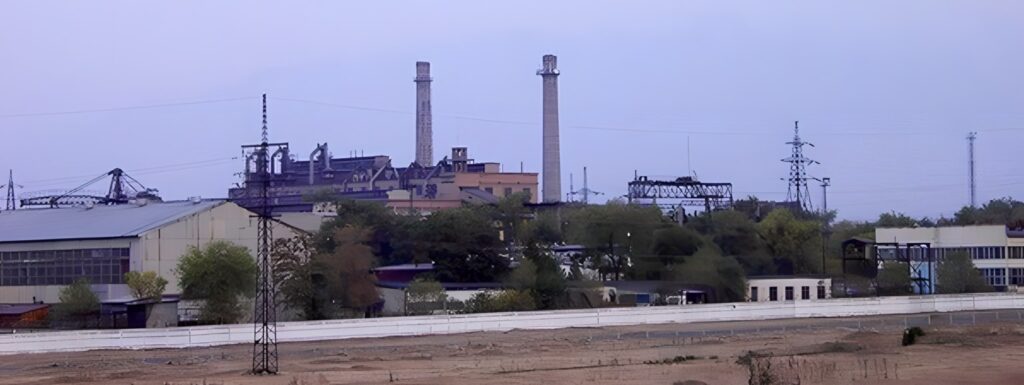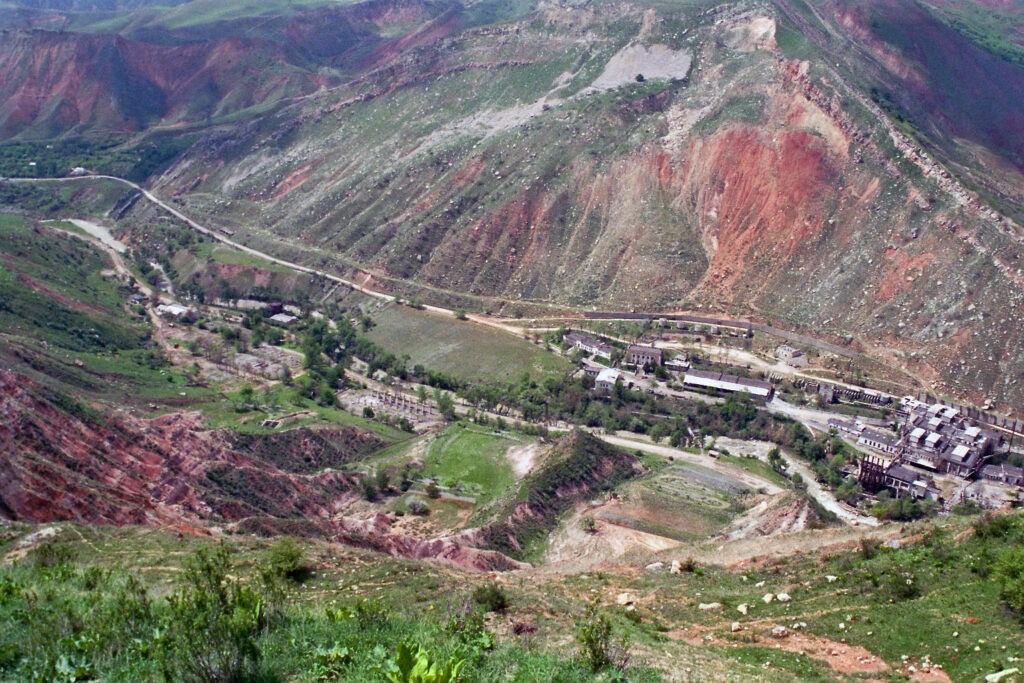BISHKEK (TCA) — On May 7, the Kyrgyz Parliament held public hearings on the draft law banning the development of uranium deposits in Kyrgyzstan for 50 years. The discussion was attended by the parliament members, local community activists, journalists and residents of the regions where uranium mining is possible.
About the bill
MPs Altynbek Sulaimanov, Almambet Shykmamatov and Kanat Kerezbekov are the bill authors.
According to Sulaimanov, the bill was drafted due to the demands of the population who proposed to completely ban geological exploration and development of uranium deposits in Kyrgyzstan. According to the bill, all the previously issued licenses should be canceled.
“The Government has taken temporary measures and the Parliament has passed a resolution prohibiting exploration and development of uranium deposits, but these are all regulatory legal acts but not a law,” MP Shykmamatov, a former Justice Minister, said explaining the need for a law.
The current Parliament will work until 2020, and heaven knows whether the next Parliament will comply with this resolution. There is no guarantee, Shykmamatov said. “If we accept the law, it will be a guarantee,” he added.
One-gate game
“We were just ignored. It was not a public hearing but a one-gate game,” said employees of the Kara-Balta mining plant and geologists who opposed the bill at the public hearing. They wanted to explain that the bill would destroy the whole industry.
According to the geologists, any attempts of the bill’s opponents to express their point of view were harshly suppressed. In protest, they left the Parliament building.
Background
Last fall, some residents of Kok-Moinok village in the Ton district of the Issyk-Kul province were against the development of uranium deposits located in their territory. The YurAsia in Kyrgyzstan LLC conducted exploration works at the Kyzyl-Ompol uranium field in the Ton district.
The locals feared the negative effects of uranium mining on the environment including pastures and mountains, as well as agriculture and tourism business.
At the meetings with local residents, the company’s representatives explained that uranium mining at Kyzyl-Ompol does not pose a threat to the environment and people’s health due to the safest technology, not involving the use of chemicals, explosions and tailings that pollute the environment. Extracted uranium in sand will be shipped in special containers by rail for processing at the Kara-Balta mining plant in the Chui province. As a result, the radiation background at the field and in its surroundings will decrease.
In November, the authorities created an interdepartmental commission that settled the situation. Its interim report showed that the radiation has not changed in the village and the surrounding territory.
But the protests resumed in April. Starting at the Kyzyl-Ompol field, the protests were held in Bishkek, Balykchi, and Karakol. The movement activists began collecting signatures against uranium mining on social networks, and as of May 5, more than 30 thousand people had signed the petition.
On April 22, the Government revoked the license for exploration and mining of uranium from the YurAsia in Kyrgyzstan. The Parliament tasked the Government to ban the development of uranium deposits by adopting an appropriate resolution.
According to the State Committee for Industry, Energy and Subsoil Use of Kyrgyzstan, 17 licenses were issued for exploration of uranium deposits in the country. Eight licenses are for uranium exploration, including three for work in the Issyk-Kul province, five in the Chui province, and one in the Batken province. The remaining licenses were issued for the exploration of other minerals, where uranium is an accompanying element.
About YurAsia in Kyrgyzstan
The YurAsia in Kyrgyzstan LLC was registered in 2004. The company received an exploration license in 2010. The main object of study is the Tash-Bulak field of the Kyzyl-Ompol group of uranium-thorianite placers.
The YurAsia in Kyrgyzstan is among of the largest taxpayers in the Ton district of the Issyk-Kul province. Since 2012, the company has invested over 271 million soms in exploration. In addition, 23 million soms were paid to the Social Fund and another 10 million soms as taxes. The company also paid more than 32.2 million to the Kok-Moinok local administration of the Ton district and 13.3 million to the Semizbel local administration of the Kochkor district as a fee for license retaining.
According to the State Committee for Industry, Energy and Subsoil Use, the license was not revoked from YurAsia, but suspended.
Between two fires
Kyrgyz authorities found themselves in a difficult situation. On one hand, they cannot ignore the opinion of the local population which may cause unrest. On the other hand, if they prohibit any works with uranium, the country may lose investment as well as the image of a reliable partner in the eyes of foreign investors.
Kyrgyz authorities quickly responded to the latest protests.
On April 22, Prime Minister Mukhammedkaly Abylgaziyev ordered to stop all uranium mining operations at the Kyzyl-Ompol deposit until the completion of a thorough environmental impact assessment. To conduct it, an interdepartmental working group was formed on April 18. Following its results, a decision will be made on the project’s future, the Prime Minister said.
“If it is established that operations at the uranium deposit may harm human health and the environment, we should abandon the deposit development. If it turns out that there are no such risks and the technological process will be completely safe, then another decision will be made based on the results of the commission’s work,” Abylgaziyev concluded.
The Government’s position has changed over the past two weeks. On April 24, the Prime Minister stated that due to the conflict situation at Kyzyl-Ompol, the authorities should seek advice from international experts, including the International Atomic Energy Agency, whose conclusion could be used as an argument in the dialogue with the local population and the contractor.
But on May 7, Deputy Prime Minister Kubatbek Boronov told the Parliament that the Government supports the bill to impose a total ban on uranium exploration and mining in Kyrgyzstan.
The current Government (which has been working since April 2018) has not issued a single license for the uranium development, Boronov said. On the contrary, it introduced a moratorium on issuing licenses and announced their inventory.
Commenting on the situation around YurAsia, he did not find any violations on its part. The company has extended its license for exploration since 2010, paying all taxes, Boronov said. “To avoid such facts, we want to introduce a license revocation rule,” he added.
On May 4, Kyrgyz President Sooronbai Jeenbekov said that there will be no uranium mining in Kyrgyzstan. Jeenbekov stressed that in his position as President, he strengthened the requirements for the subsoil use.
“The mining industry, especially the licensing system, is mired in corruption, and the situation has been brought to its limits,” the President said.
The head of state assessed the situation in Kyzyl-Ompol as “a result of a mess and willful policy in the mining industry”. Over the past eight years, hundreds of criminal cases have been initiated in the subsoil use, but many have not been brought to court.
Opinions
Kyrgyzstan does not need uranium, “because we don’t need a nuclear power plant,” said Orozbek Duisheev, head of the Mining Industrialists and Geologists Association of Kyrgyzstan.
Scientist Kushbakali Tajibaev proposed to introduce a moratorium for 50 years. Perhaps an environmentally friendly technology of using nuclear energy will be developed during this time. Uranium and thorium are strategic energy raw materials. If the law does not provide for a specific timeframe, we will return Kyrgyzstan to the Stone Age, he said.
To avoid legal proceedings related to the possible new law on uranium prohibition, Tajibaev proposed to introduce an additional paragraph on the protection of investors’ interests.
“What if it suddenly turns out that the uranium mining at Issyk-Kul will actually bring no danger but benefit?” Executive Director of the Union of Entrepreneurs of Kyrgyzstan Erlan Eresheev asked the MPs.
When adopting the law banning the uranium mining, it is necessary to take into account that uranium will remain in the soil in the biosphere zone of Issyk-Kul, which would scare off tourists. Uranium deposits are on the surface, so it would be appropriate to speak about the uranium export, or de-uranization of the Issyk-Kul biosphere zone, Eresheev believes.
“We are discussing the theoretical implications that may not exist,” Eresheev said. There is no expertise on the environmental impact of this field so far.
“Most of the businesses are in stagnation in Kyrgyzstan. We are talking about the development of regions and attracting investment but in reality we are arranging a nightmare for attracted investors,” he stressed.
The entrepreneurs suggested creating of a wide format commission to find out whether the uranium development at Kyzyk-Ompol is harmful or useful.
Conclusion
According to various state development programs, foreign direct investment is of particular importance for Kyrgyzstan, and this requires a consistent and sustainable state policy.
Attracting investors to the country, the State promises them the rule of law, predictable legislation, guarantees including a stabilization regime, and protection of property rights.
However, the recent events make investors think about whether they should risk in this country.









